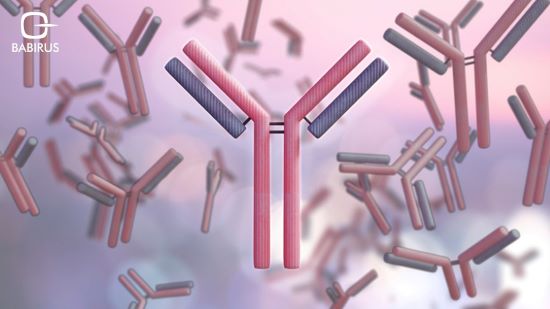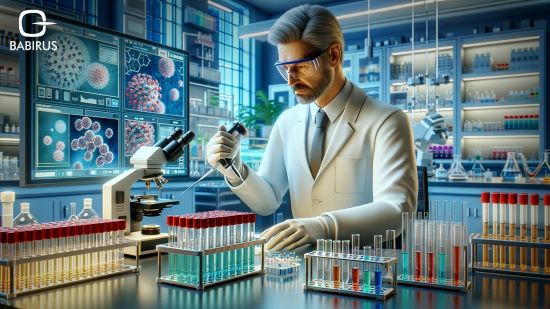Different Types of Immunoassays

All the different types of immunoassays are highly effective and directly impact the processes of healthcare and research to help professionals identify and measure all sorts of biological markers in our bodies and the environment.
Moreover, the various types of immunoassays can effectively detect all the big and small details in a complex biological landscape which boosts the efficiency of applied medical treatment.
Continue reading with us to learn about the different types of immunoassays, their principles, applications, and factors to consider when selecting the right type for your laboratory’s needs.
What are Immunoassays?
Immunoassays refer to all the biochemical tests that work based on the binding attraction indicators between an antigen and an antibody to detect and measure substances in a sample.
The versatility and sensitivity of the different types of immunoassays make them a preferred choice for many applications in various fields such as medical diagnostics, food safety, and environmental monitoring.
The Power of Antibodies: The Core Principle of Immunoassays
The fundamental principle behind the immunoassay working technique is the detection and monitoring of the specific interaction between an antibody and its corresponding antigen.
Furthermore, antibodies are proteins produced by the immune system that can attach to specific molecules with high specificity. To measure the presence and concentration of antigens in a sample, and detect several diseases or contaminants.
Exploring the Immunoassay Toolbox: A Look at Different Types
Immunoassays are not only useful tools in clinical and research settings but also allow for the detection and quantification of a wide range of biomolecules.
Each type of immunoassay is suited to particular applications based on the nature of the antigen, the required sensitivity, and the available laboratory resources.
· Competitive Immunoassays:
In competitive immunoassays, both the target antigen from the sample and a labeled antigen compete for binding to a specific antibody. The more target antigen present, the less labeled antigen will bind to the antibody.
This inverse relationship is crucial for quantifying lower concentrations of antigens, making competitive immunoassays ideal for small molecules like hormones and drugs.
· Non-Competitive Immunoassays:
Non-competitive immunoassays, also known as sandwich assays, do not involve competition, as they use two antibodies that bind to different epitopes of the target antigen.
This format is typically used for larger molecules and provides enhanced sensitivity and specificity, crucial for diagnostic applications where accurate detection is required.
· Other Immunoassay Formats:
Beyond competitive and non-competitive immunoassays, there are many other different types of immunoassays, each tailored to specific analytical needs. These include:
- Enzyme-linked immunosorbent assays (ELISA).
- Chemiluminescence immunoassays (CLIA).
- Radioimmunoassays (RIA).
- Immunofluorescence (IF).
- Immunohistochemistry (IHC).
- Flow cytometry (FC).
- Immunoprecipitation (IP).
- Western Blot (WB).
The choice of format depends on the required sensitivity, specificity, and the nature of the analyte being tested.
Choosing the Right Immunoassay: 5 Factors to Consider
Selecting the appropriate type of immunoassays involves considering several factors:
1. Analyte Type (small molecule, large molecule):
· Small Molecule:
These are typically low molecular weight compounds, often less than 900 daltons. Immunoassays for small molecules, such as hormones or drugs, often use competitive immunoassays.
The small size of the molecule usually needs a precise and sensitive assay because the small molecule can be challenging to detect due to its low immunogenicity.
· Large Molecule:
These include proteins, large peptides, or complex carbohydrates, which are generally larger than 900 daltons. For large molecules, non-competitive immunoassays, particularly sandwich assays, are preferred due to their higher specificity and sensitivity.
Large molecules have multiple epitopes, allowing two antibodies to bind simultaneously, which aids in robust detection and quantification.
2. Desired Sensitivity and Specificity:
· Sensitivity:
This refers to the ability of the immunoassay to detect small amounts of the analyte. High sensitivity is crucial when the analyte is present at very low concentrations but still clinically significant.
· Specificity:
This refers to the ability of the immunoassay to accurately identify the analyte without cross-reacting with other substances in the sample. High specificity is essential to avoid false positives and ensure that the assay’s results are solely due to the analyte of interest.
3. Throughput Requirements (number of samples):
This factor refers to the number of samples that can be processed within a given time frame. Moreover, high-throughput immunoassays are needed when large volumes of samples must be analyzed quickly, such as in population screenings or high-volume clinical labs.
Thus, automated immunoassay systems are often used to meet high-throughput needs.
4. Availability of Resources and Equipment:
The choice between the different types of immunoassays may depend on the type of equipment available in a laboratory. Some immunoassays might require specialized instruments, such as those needed for readouts in fluorescence or chemiluminescence immunoassays.
Therefore, laboratories need to consider what instruments they have and whether additional training or purchases will be necessary. However, to make a cost-effective purchase process, you must choose your new machines from reputable suppliers who offer strong 24/7 technical support.
Who ensure stock availability for necessary parts, and offer reliable, well-regarded immunodiagnostics machines.
Thus, selecting the right supplier not only helps in maintaining the continuity and efficiency of laboratory operations but also guarantees that you will get the best after-sell service.
5. Cost Considerations:
The overall cost of running an immunoassay includes the price of reagents, instruments, and operational expenses like labor and maintenance.
Therefore, cost-effectiveness is a crucial consideration, especially in resource-limited settings, moreover, decision-makers must balance between the quality and quantity of data produced based on the budget available.
Last but not least,
The selection of different types of immunoassays must depend on the specific requirements of the test, and your healthcare facility’s needs.
Thus, understanding these options is necessary to allow researchers and clinicians to effectively use different types of immunoassays in their work, and achieve accurate and reliable results.
Contact Babirus today, to guarantee getting the best immunoassays from the best supplier in the UAE.

